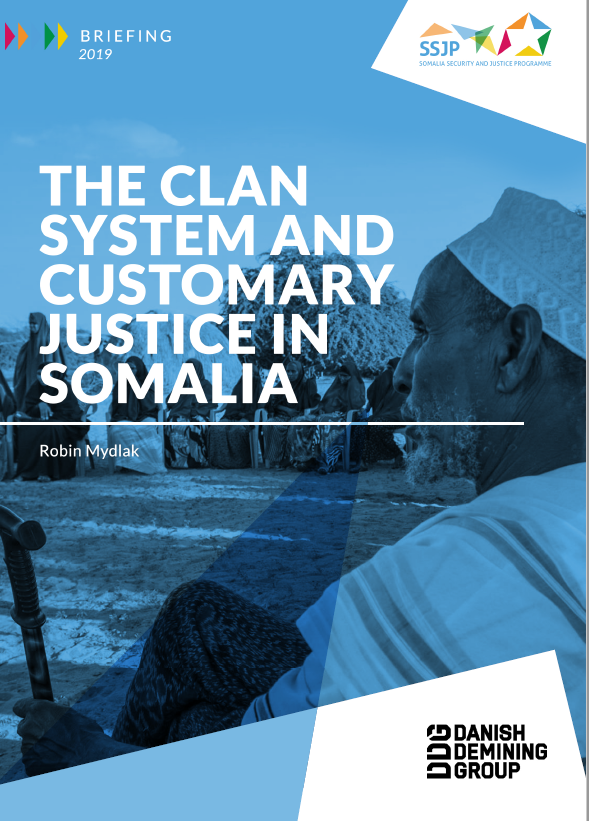This brief introduces key terms and the current state of customary justice in the Somali context.
Attempts to supplant customary practices with statutory institutions have failed time and again as people have rejected these imposed structures. Xeer is not likely to cede its primacy across Somali communities anytime soon. Nor will it be possible for other institutions to govern without acknowledging and incorporating customary practices. Justice sector reform efforts would do well to abandon pre-conceived models, acknowledge existing legal pluralism, and facilitate the emergence of an institutional environment that is appropriate to the Somali context. Despite overwhelming evidence to this effect, many international actors are reluctant to engage with local customary justice institutions. The Danish Demining Group’s (DDG’s) engagement with customary institutions presents one of the longest-term external approaches and feeds into a landscape of justice sector reform actors that is as pluralist as Somalia’s justice sector itself.
Definitions
- Clan (qabiil) is a category of social organisation that anchors individual and group identity in the Somali context. Each clan is divided into sub-clans, which link back to a common male ancestor. The pervasiveness and endurance of the clan system is closely linked to the importance of land-based resources. As they become more embattled in an increasingly arid and drought-ridden climate and political positions promise access to plentiful external financial assistance, allocation of these positions and of economic opportunities along clan lines has become engrained in Somalia’s political economy. This practice is commonly referred to as clannism (qabaa’ilka).
- Xeer literally translates as “agreement.” It largely consists of bilateral or multilateral contracts entered into by clan groups in a particular locality. Xeer represents a convention of legal practice among Somali clans based on collective responsibility and compensation rather than individual punishment. Elders are central to xeer negotiations; political leaders’ appointment of elders to key positions that secure clan allegiances has served to undermine elders’ legitimacy within many communities.

